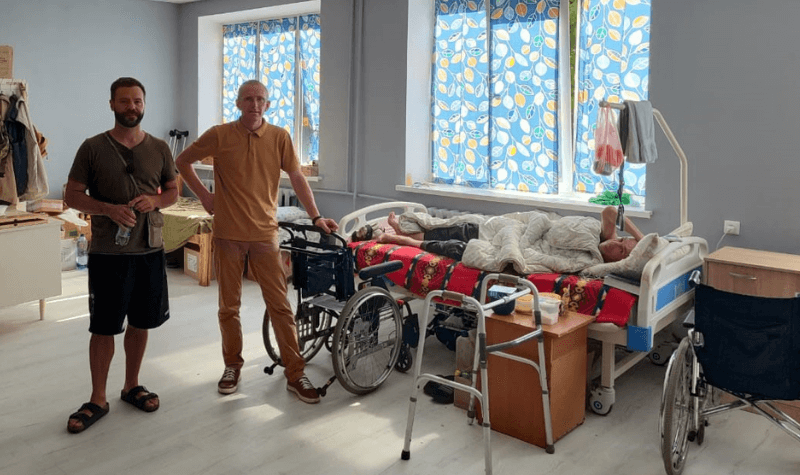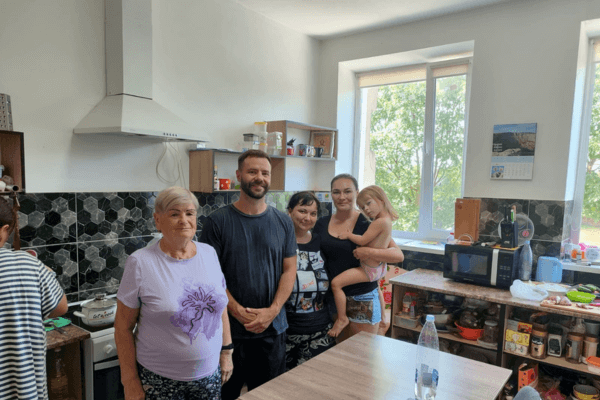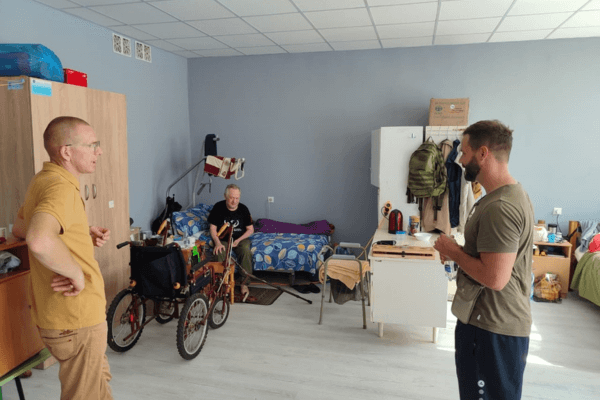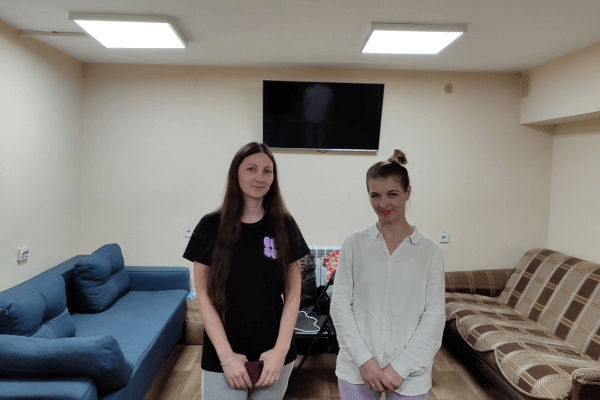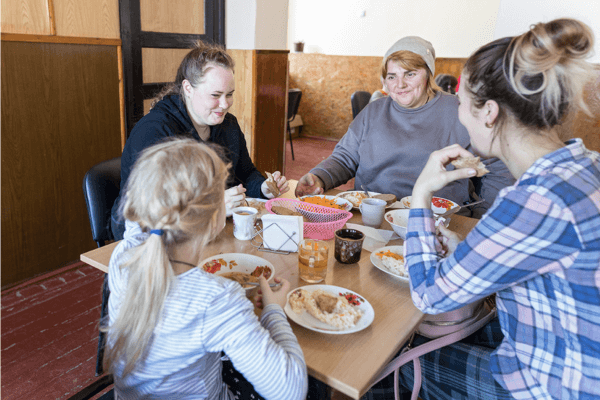For the past three years, our project in Ukraine has provided prospects for many vulnerable IDPs. We provide important help, particularly in social facilities, by creating safe accommodations, providing psychological and medical care and helping people to build a new life. Our commitment offers women, children and people in need of care protection and hope in a difficult time.
Supporting a refugee shelter in Chernivtsi
This facility has become a refuge for particularly vulnerable people. Cap Anamur has contributed to the expansion of the shelter: We have built two large kitchens and created a special living space for people with physical disabilities.
Most recently, we supported the establishment of an integration unit for psychiatric patients – a pilot project for people who had to flee eastern Ukraine because many care facilities there were destroyed or closed. Similar facilities are to be set up in other regions in the future.
In Chernivtsi, these residents find a safe home for a year, professional care and support to help them build a new life. They are offered help in finding housing and work opportunities so that they can live independently again. For many, this accommodation has become a last resort when they are unable to find help elsewhere.
The continued existence of such facilities is threatened
Due to the ongoing war, the Ukrainian state is unable to provide as much funding for its social services. Right now, it is crucial to maintain these emergency centers – because they are the last hope for many people.
Another important project is a women’s shelter in Dnipro, which we will be launching shortly. It will take in women who have experienced gender-based violence, among other things. In a protected environment, they receive medical care, psychosocial support and help in developing prospects for the future. It is women like Yulia and Inha who have experienced domestic violence and have found refuge in the women’s shelter with their children. Cap Anamur finances the running costs of the facility, including rent, food and the salaries of the four caregivers.

